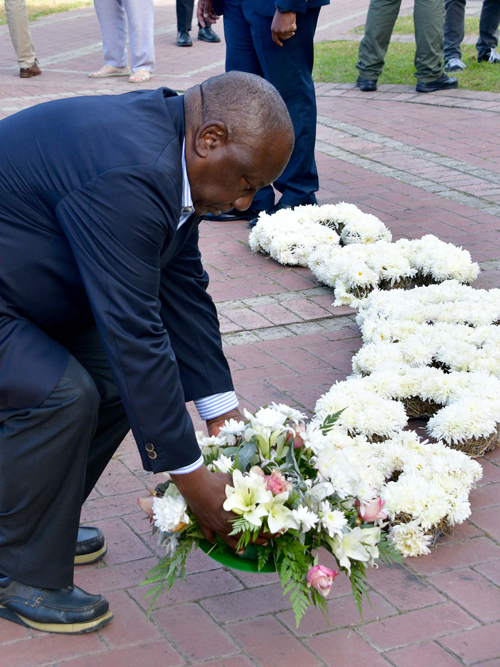President Cyril Ramaphosa is saddened by the passing of retired Constitutional Court Justice and Esteemed Member of the Order of the Baobab, Yvonne Mokgoro.
Justice Mokgoro passed away on Thursday, 9 May 2024, at the age of 73, following an extended period of illness arising from a vehicle accident.
On behalf of Government, President Ramaphosa offers his deep condolences to Prof Job Mokgoro and the late Justice’s immediate and extended family, as well as her many associates in the legal fraternity in South Africa and abroad.
Justice Mokgoro was a judge of the Constitutional Court of South Africa from its inception in 1994 until the end of her 15-year term in 2009.
She obtained a Bachelor of Jurisprudence (B Juris) degree at the then University of Bophuthatswana (now North-West University) in 1982, a Bachelor of Laws (LLB) two years later, and a Master of Laws (LLM) degree in 1987.
She also studied at the University of Pennsylvania in the United States of America, where she obtained a second LLM degree in 1990.
Throughout her legal career she taught a number of courses, including Constitutional Law, Human Rights Law Jurisprudence, History of Law, Comparative Law, Criminal Law, Private Law and Customary Law at a number of universities in South Africa, the United Kingdom, the USA and the Netherlands.
She wrote and presented papers, and participated in a myriad national and international conferences, seminars and workshops in South Africa and internationally, mainly in sociological jurisprudence and particularly on human rights, customary law, focusing on the impact of law on society generally, and on women and children specifically.
In 2015 she was inducted as a Member of the Order of the Baobab in Bronze for her excellent contribution in the field of law and administration of justice in a democratic South Africa.
President Ramaphosa said: “Justice Mokgoro’s passing deprives our nation of a formidable intellect and impeccable jurist who served our democracy at its very inception and through the years that followed.
“As we recall the inauguration of our Founding President Nelson Mandela 30 years ago on this day, 10 May, we count his appointment of Justice Mokgoro to the Constitutional Court as one of the critical, transformative decisions he exercised in those early days of our liberation.
“As a black female judge, she was a pioneering embodiment of and contributor to the transformation of our country and the legal system and new jurisprudence that enabled this transformation.
“Justice Mokgoro distinguished herself as an academic, a justice of our apex court, Chairperson of the South African Law Commission and as a strategic advisor to a diversity of boards in different sectors.
“Her insightful and principled counsel lives on in the thousands of legal careers she shaped in the course of her academic endeavours.
“She has left us under very tragic circumstances, and we therefore join the family in their sadness and in their prayers that this beloved mother, patriot, leader and citizen of the globe will rest in peace.”
Media enquiries: Vincent Magwenya, Spokesperson to the President, on media@enquiries.gov.za
Issued by: The Presidency
Pretoria







